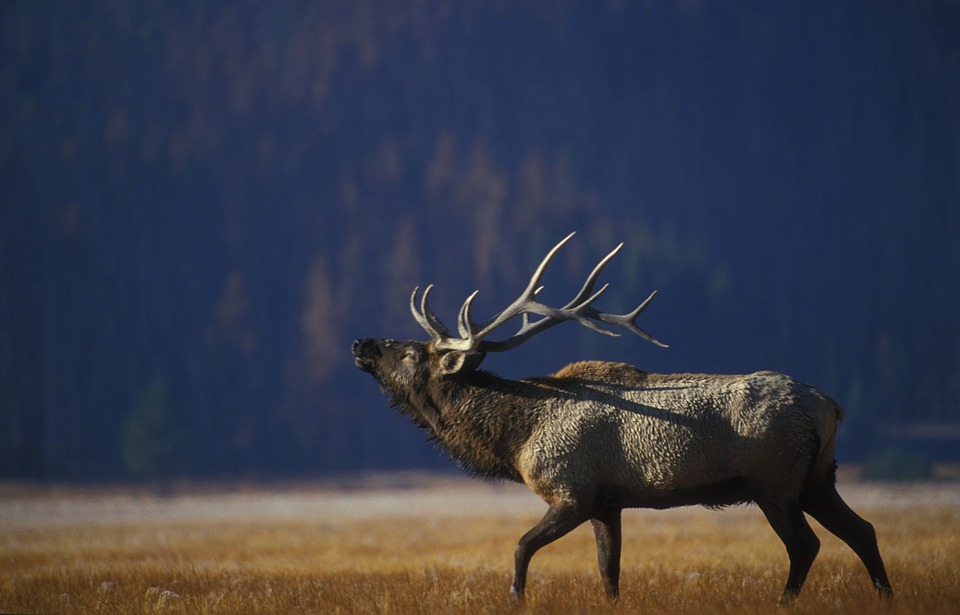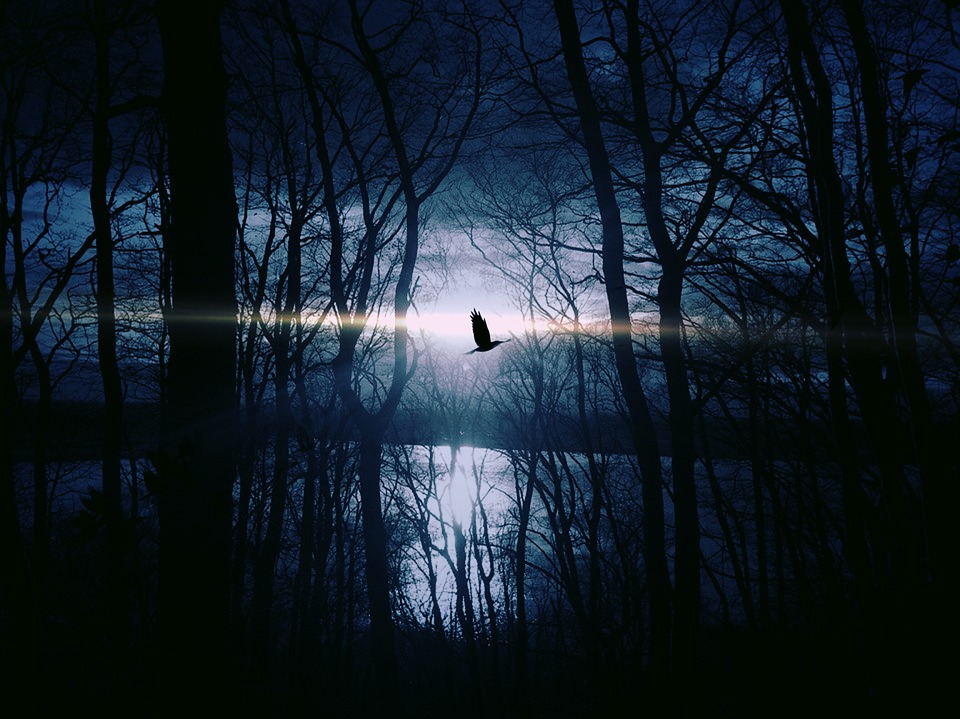
There was a time when I thought men who shot the largest bull or biggest buck were the most admirable hunters. It can take more skill to bag the bigger game. How would the animal have gotten so large if it wasn’t the strongest, the cleverest? Now, I do not look so fondly on trophy hunting. I may still be impressed by the skill of the hunter, but there is a part of me that cringes and twists when I see the most beautiful of a species lying dead in the back of a pickup truck. I feel now that trophy hunting is unethical.
You can tell a lot about a man by his trophies. Trophies show that a man has the gift of denying himself momentary success for a larger pay out in the future. A good hunter may see many elk in a season, but passes them for the bigger bull. The trophy hunter may shoot nothing in a season because nothing met his standards. A trophy hunter often represents the best of hunters. The big trophies are usually hidden in the depths of the valleys, in the darkest parts of the thickets. Therefore, you can assume the man with many impressive trophies is willing to sacrifice comforts for the goals he sets for himself. He is likely a methodical man, a planner. He is unlikely to be neurotic. A calm man gets the game, where the fidgety man will almost certainly fail. All of these qualities I admire. Along with war, business and athletics, the hunting of trophy animals is among the most extreme examples of man’s ability to overcome obstacles.
Must the most beautiful specimens of a species die in order to prove a man’s prowess as a hunter? I don’t think so. I think that the reason for hunting is as important as the qualities that hunting produces in a man. A man may state that his reasons for hunting trophy animals are to develop in himself the qualities I listed above: self-denial, calmness, perseverance, hardiness. A hunter may claim that it is the hunting of the trophy that teaches him respect for the game, in the same way a strong opponent earns a wrestler’s respect or a warrior’s. To think that one must kill his adversary in order to learn respect is incorrect. I think that the true reason hunters seek out the trophy is lust. They lust for it. They are greedy and they are full of arrogant pride. I know, because I have felt those feelings surging through me when my sights are rested on something beautiful and special. There are several animals I look back on that I remember looking at me before I shot and killed them. I remember thinking how special they were before I forever stole them from this mortal world. I wish I had never been so proud, so greedy. I stole beauty from the world.
Let me ask a rhetorical question. Who respects the animal more? The man who after many days, weeks or months comes upon his opportunity to shoot his revered quarry and does so, killing it? Or rather, the man who after many days, weeks or months comes upon his opportunity to shoot his revered quarry and is overcome with awe and leaves the animal to live? The animal walks away. Forever, the man remembers the day he was so close to the animal he reveres so highly it nears worship. Which loves and respects the hunt more? Which loves and respects the game more?
I am sure I can be called a hypocrite. I have killed my share of animals. I by no means think that hunting should cease altogether or that everybody should pick up a camera in place of their bow or rifle. What I am instead suggesting, is that we rethink our outlook on what we are doing in the long run when we kill the biggest and best of a species.
The lustiest of hunters, which I may write more about later, are the fools who shoot at first opportunity, often missing their prey altogether. But for now, I want to deal with the reasons the lust for trophy animals is harmful and unethical. I am sad to say, this is a lecture towards a lusty group of hunters I respect.
First of all, the hunting of trophies has nothing to do with proper game management nor subsistence hunting, two of the big hitter arguments for hunting in the first place.
Trophy hunting, excepting rare occasions, is the opposite of proper game management, because it leads to the demise of the healthiest, likely most fertile, strongest, smartest animals. The repercussions of managing herds in a way that the best males are removed are simple for even the least educated among us to understand and foresee. The basis of evolution is that those not well adapted to their environment are weeded out. Trophy hunting follows the opposite of that principle. In theory, trophy hunters are making the population weaker and weaker.
There is a line of thinking that goes like this; harvest the older males so that the younger more fertile males have a chance. This would be valid, if humans were the only deciding factor in determining the fitness of an animal. But the strengths it took for an older animal to make it to old age are not visible to a human at all. For instance, a young buck may seem to be big and brawny during its youthful ruts but it may have never experienced a hard winter, or decimating disease. The young buck may have no resilience when the going gets tough. The older bucks have won in the battle for does, won in the battle against the seasons and won in the battle against diseases. To leave the older stronger bucks, ensures that the young bucks that survive the hunting season must compete against all the same rigors. That giant bull elk may be defeated next year by the younger stronger bull, but that is the natural way. To kill that big bull is not only to remove it from the herd but to remove its offspring from the future. Good management will better the herds. I cannot see any reason that taking the biggest, strongest animals helps to better the herds.
Human’s with rifles or bows do not compete with a deer in the ways that it can compete. A human hunter does not test the limits of the prey in the way that a wolf does or an extreme environment. The deer cannot outrun a bullet. The bison cannot crush the head of its attacker with a swift kick from 100 yards away. We as a species have set ourselves apart from the natural world by way of technology. We must now use that creative wisdom to better manage the earth.
As far as trophy hunting and subsistence hunting are concerned, trophy hunting is often the opposite of subsistence hunting. Yes, a bigger trophy will have more meat, sometimes, but the bigger trophy requires the passing over shots on lesser animals. Would a hungry man pass the opportunity to shoot a forked horn because he wants an extra twenty pounds of meat in the future? I doubt it. Along the line of thinking that trophy hunting requires more patience, and hunting deeper into the woods or mountains, I can easily make the argument that a trophy hunt requires more energy than the meat of the animal will provide. When one considers costs of gas, time, and energy hiking, waiting etc, it doesn’t add up to subsistence hunting at all. It usually adds up to a huge expense. A subsistence hunter will take what comes, what is adequate to feed his family.
What, then, would better management look like? There are many factors to bettering the modern ethics of hunting and game management. Using more primitive weaponry would help but that’s a topic for another time. For now, suffice it to say that instead of passing up on the smaller animals, perhaps it is best to pass up the most majestic of the animals.
